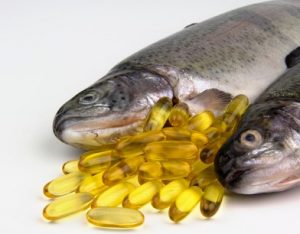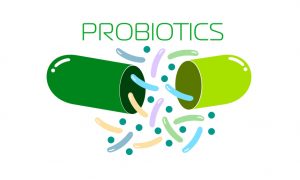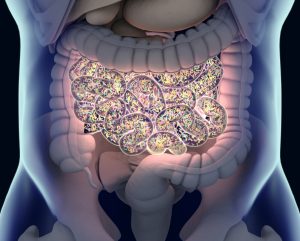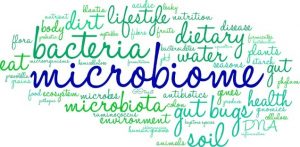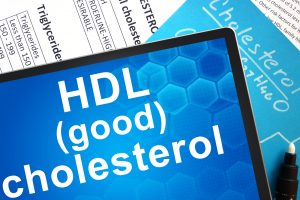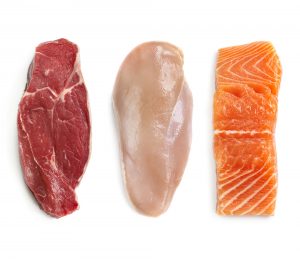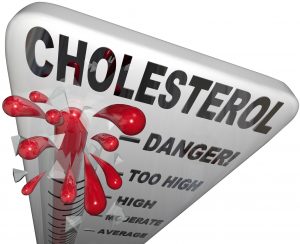Will Whole Grains Kill Me?
 It seems like just yesterday that health experts all agreed that whole grains were good for us. After all:
It seems like just yesterday that health experts all agreed that whole grains were good for us. After all:
- They are a good source of fiber, B vitamins, vitamin E, and the minerals magnesium, iron, zinc, manganese, and selenium.
- Their fiber fills you up, so you are less likely to overeat. This helps with weight control.
- Their fiber also supports the growth of friendly bacteria in your gut.
In fact, the USDA still recommends that half of the grains we eat should be whole grains. And, outside experts, not influenced by the food industry, feel this recommendation is too low. They feel most of the grains we eat should be whole grains. Foods made from refined grains should be considered as only occasional treats.
Then the low-carb craze came along. Diets like Paleo and Keto were telling you to avoid all grains, even whole grains. Even worse, Dr. Strangelove and his colleagues were telling you whole grains contained something called lectins that were bad for you. Suddenly, whole grains went from being heroes to being villains.
You are probably asking, “Should I avoid whole grains?” What is the truth? Perhaps the best way to resolve this debate is to ask, how healthy are people who consume whole grains for many years? This week I share a recent study (G Zong et al, Circulation, 133: 2370-2380, 2016) that answers that very question.
How Was The Study Done?
This study was a meta-analysis of 14 clinical trials that:
- Enrolled a total of 786,076 participants.
- Obtained a detailed diet history at baseline.
- Followed the participants for an average of 15 years (range = 6-28 years).
- Determined the effect of whole grain consumption on the risk of death from heart disease, cancer, and all causes.
Will Whole Grains Kill Me?
 Dr. Strangelove and his colleagues are claiming that whole grains cause inflammation, which increases your risk of heart disease and cancer. Heart disease and cancer are the leading causes of death in this country. In fact, according to the CDC, heart disease and cancer accounted for 44% of all deaths in the US in 2017.
Dr. Strangelove and his colleagues are claiming that whole grains cause inflammation, which increases your risk of heart disease and cancer. Heart disease and cancer are the leading causes of death in this country. In fact, according to the CDC, heart disease and cancer accounted for 44% of all deaths in the US in 2017.
Therefore, if Dr. Strangelove and his colleagues were correct, consumption of whole grains should increase the risk of deaths due to heart disease and cancer – and increase the risk of death due to all causes.
That is not what this study showed.
When the highest whole grain intake (5 servings/day) was compared with the lowest whole grain intake (0 servings/day), whole grain consumption reduced the risk of death from:
- Heart disease by 18%.
- Cancer by 12%.
- All causes by 16%.
Furthermore, the effect of whole grains on mortality showed an inverse dose response. Simply put, the more  whole grains people consumed, the lower the risk of deaths from heart disease, cancer, and all causes.
whole grains people consumed, the lower the risk of deaths from heart disease, cancer, and all causes.
However, the dose response was not linear. Simply going from 0 servings of whole grains to one serving of whole grains reduced the risk of death from.
- Heart disease by 9%.
- Cancer by 5%.
- All causes by 7%.
The authors concluded: “Whole grain consumption was inversely associated with mortality in a dose-response manner, and the association with cardiovascular mortality was particularly strong and robust. These observations endorse current dietary guidelines that recommend increasing whole grain intake to replace refined grains to facilitate long-term health and to help prevent premature death.”
The authors went on to say: “Low-carbohydrate diets that ignore the health benefits of whole grain foods should be adopted with caution because they have been linked to higher cardiovascular risk and mortality.”
Should I Avoid Whole Grains?
 As for the original question, “Should I avoid whole grains?”, the answer appears to be a clear, “No”.
As for the original question, “Should I avoid whole grains?”, the answer appears to be a clear, “No”.
The strengths of this study include the large number of participants (786,076) and the demonstration of a clear dose-response relationship between whole grain intake and reduced mortality.
This study is also consistent with several other studies that show whole grain consumption is associated with a lower risk of heart disease, diabetes, cancer – and appears to lead to a longer, healthier life.
In short, it appears that Dr. Strangelove and the low-carb enthusiasts are wrong. Whole grains aren’t something to avoid. They reduce the risk of heart disease, diabetes, and cancer. And they reduce the risk of premature death. We should be eating more whole grains, not less.
However, the authors did point out that this study has some weaknesses:
- It is an association study, which does not prove cause and effect.
- Study participants who consumed more whole grains also tended to consume more fruits and vegetables – and less red meat, sodas, and highly processed foods.
However, I would argue the second point is a strength, not a weakness. We need to give up the idea that certain foods or food groups are “heroes” or “villains”. We know that primarily plant-based diets like the Mediterranean and DASH diets are incredibly healthy. Does it really matter how much of those health benefits come from whole grains and how much comes from fruits and vegetables?
The Bottom Line
Dr. Strangelove and low-carb enthusiasts have been telling us we should avoid all grains, including whole grains. Is that good advice?
If Dr. Strangelove and his colleagues were correct, consumption of whole grains should increase the risk of deaths due to the top two killer diseases, heart disease and cancer. Furthermore, because heart disease and cancer account for 44% of all deaths in this country, whole grain consumption should also increase the risk of death due to all causes.
A recent study showed the exact opposite. The study showed:
When the highest whole grain intake (5 servings/day) was compared with the lowest whole grain intake (0 servings/day), whole grain consumption reduced the risk of death from:
- Heart disease by 18%.
- Cancer by 12%.
- All causes by 16%.
Furthermore, the effect of whole grains on mortality showed an inverse dose response. Simply put, the more whole grains people consumed, the lower the risk of deaths from heart disease, cancer, and all causes.
However, the dose response was not linear. Simply going from 0 servings of whole grains to one serving of whole grains reduced the risk of death from.
- Heart disease by 9%.
- Cancer by 5%.
- All causes by 7%.
The authors concluded: “Whole grain consumption was inversely associated with mortality in a dose-response manner, and the association with cardiovascular mortality was particularly strong and robust. These observations endorse current dietary guidelines that recommend increasing whole grain intake to replace refined grains to facilitate long-term health and to help prevent premature death.”
The authors went on to say: “Low-carbohydrate diets that ignore the health benefits of whole grain foods should be adopted with caution because they have been linked to higher cardiovascular risk and mortality.”
For more details read the article above.
These statements have not been evaluated by the Food and Drug Administration. This information is not intended to diagnose, treat, cure, or prevent any disease.

